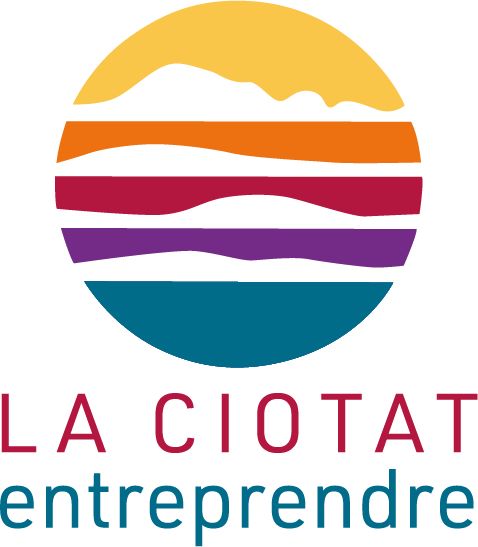
Trudyterryartworks
FollowOverview
-
Date de fondation 26 novembre 1939
-
Secteurs Finance
-
Posted Jobs 0
-
Vues 53
L'entreprise
2025 United States Executive Orders, DEI, and Employment: how In-house Lawyers can help the Business
Remind me, what’s an executive order?
Executive orders are instructions bought by the president of the United States that direct government agencies and officials to take specific actions. While they are not laws, they have the force of law and impact how existing laws are carried out or implemented.
Executive orders affect the firms of the executive branch and therefore do not need the approval of Congress. They must be within the president’s constitutional authority and might be challenged in court if considered unconstitutional.

Executive orders may be rescinded, overturned by future presidents, or challenged in court, and enforcement concerns can change throughout any administration.
The new administration’s actions have significant impacts beyond executive orders. For more on mitigating danger, international services can take new opportunities by remaining active.
Implications of the executive orders for DEI efforts and work in private-sector companies
On Jan. 21, President Trump issued « Ending Illegal Discrimination and Restoring Merit-Based Opportunity, » which reverses different prior executive orders and memoranda, consisting of Executive Order 11246 (EO 11246) signed in 1965 by President Lyndon B. Johnson.
EO 11246 needed every government contract to include a statement that the specialist will not discriminate versus any staff member or applicant for work based on race, creed, color, or nationwide origin.
Despite President Trump’s brand-new executive order, the underlying federal anti-discrimination law remains the same for private-sector employees.
However, the executive order signals that there might be changing enforcement top priorities in the new administration. The order directs all federal agencies to « fight illegal private-sector DEI choices, requireds, policies, programs, and activities. »
In December 2024, President-elect Trump tapped Harmeet K. Dhillon to lead the Justice Department’s civil liberties workplace, pointing to his record of « taking legal action against corporations who utilize ‘woke’ policies to victimize their employees. »
In addition to revoking EO 11246, the Jan. 21 executive order advises each firm of the federal government to identify « approximately nine possible civic compliance examinations » of private sector entities within 120 days of the order – by May 21, 2025.
The private sector entities based on these investigations include openly traded corporations, big nonprofits – including bar associations – large foundations, and universities whose endowments exceed US$ 1 billion.
Organizations that may be targeted should ask:
– What is my organization’s risk tolerance?
– How will workers react to the company’s actions?
– How will customers and stakeholders respond?
What in-house counsel ought to think of:
Assess any federal agreements and grants
– Determine if they contain any terms or conditions associated with DEI that might contravene existing laws and policies
Review your company’s existing DEI policies to understand your danger
– Prepare for increased analysis and possible civil compliance examinations
Document, document, file

– Hiring and recruitment procedures
– Performance assessments and promotion choices
– Training materials and attendance records
– Any changes to DEI policies
Implications for federal contractors
To name a few measures, the Jan. 21 Executive Order requires the heads of federal firms to consist of specific terms in every agreement or grant award:
– « A term needing the legal counterparty or grant recipient to agree that its compliance in all respects with all applicable Federal anti-discrimination laws is material to the government’s payment decisions for functions of section 3729( b)( 4) of title 31, United States Code »; and
– « A term requiring such counterparty or recipient to license that it does not run any programs promoting DEI that break any applicable Federal anti-discrimination laws. »
Section 3729 of title 31 of the United States Code is a provision of the US False Claims Act, a federal law that imposes civil penalties on those who make false claims to the federal government in order to influence the payment or receipt of money or property.
The accreditation requirement carries a potential threat of litigation for federal professionals under the False Claims Act. In-house lawyers at federal specialists hence have a particular interest in ensuring their organization’s policies, procedures, practices, interactions and material, are reviewed. Assess if adjustments are required to reduce the danger of litigation.
Executive orders targeting prohibited immigration
President Trump’s preliminary flurry of executive orders consisted of lots of – such as the Jan. 20 executive order « Protecting the American People Against Invasion » – focused on restricting prohibited migration and deporting unlawful immigrants. The orders call for enforcement actions by federal firms against illegal migration.

In-house attorneys need to consider examining their company’s employment eligibility verification process. They may also wish to think about whether the company is gotten ready for reacting to an I-9 audit or a worksite enforcement action (or job raid) by migration enforcement agencies.
Sectors that might be especially impacted include farming, hospitality, and other markets such as building and construction. From 2020-2022, 42 percent of crop farmworkers held no work authorization, according to the US Department of Agriculture. The American Immigration Council approximates that more than one million undocumented immigrants operate in hospitality, representing 7.1 percent of the labor force.
In-house counsel have an important role to play in establishing and ensuring consistent application of the Form I-9 and E-Verify regulations the federal government utilizes to implement and impose migration law, shares John W. Mazzeo, AGC, director job of I-9 and E-Verify compliance for job Vertical Screen, Inc., in a 2024 ACC Docket short article.

Check out useful lists of considerations pertinent for in-house attorneys on the topic of I-9 audits and worksite enforcement actions.
If an employer does not comply with a civil administrative warrant provided by US Immigration and Customs Enforcement (ICE), there is a danger that the company could start an I-9 audit if they felt an employer was blocking their need to jail a non-citizen employee, or sometimes obtain a criminal warrant from a judge if actions support it.
Steps internal counsel should think about:
– Determine how lots of employees could potentially be impacted
– Review your organization’s work eligibility confirmation procedure
– Ensure your company’s process is documented and defensible
– Implement and implement clear policies
– Monitor legal developments, consisting of lawsuits and enforcement assistance
Mitigate threat, stay active, and take brand-new opportunities
The recent executive orders will considerably impact international services. Legal departments and in-house counsel will require to help their organizations comprehend and adapt to modifications, ensuring compliance or job litigating when appropriate.
Many of the brand-new administration’s decisions will play out over the coming months, consisting of new executive orders and legal difficulties. The Docket will continue to keep an eye on developments. Global in-house attorneys need to get ready for fast advancements related to:

Trade and tariffs. On Feb. 1, President Trump purchased the imposition of a 25-percent tariff on imports from Canada and job Mexico, and 10-percent extra tariffs on imports from China. The former two were both delayed by a month as the administration participates in settlements. Meanwhile, China has actually begun its own retaliatory procedures on US products. He had actually formerly announced his intent to impose 25-percent escalating tariffs on Colombia (an action that was ultimately not taken).
Technology and copyright. One of the president’s first actions was to rescind the previous administration’s AI executive order. The brand-new administration also extended a grace period for TikTok’s impending restriction, sending waves throughout the innovation sector, both in the United States and abroad.
Energy, environment, and health. The president likewise withdrew the United States from the Paris Climate Agreement and job the World Health Organization, putting an early focus on American energy self-reliance and away from the previous administration’s global sustainability efforts.
Steps in-house counsel should think about:
– Assess the effect of potential tariff increases on supply chain and business connection.
– Assess the organization’s dependence on social networks platforms, such as for marketing functions, and the possible requirements to backup social media data and assets in the occasion their chosen platform stops to be readily available.
– Consider how advancements in the brand-new administration’s approach to ecological, sustainability and governance problems may affect the company’s ESG technique.
Disclaimer: The info in any resource in this site ought to not be construed as legal advice or as a legal viewpoint on particular truths, and ought to not be considered representing the views of its authors, its sponsors, and/or ACC. These resources are not planned as a conclusive declaration on the subject . Rather, they are meant to act as a tool offering practical guidance and references for the busy internal practitioner and other readers.


